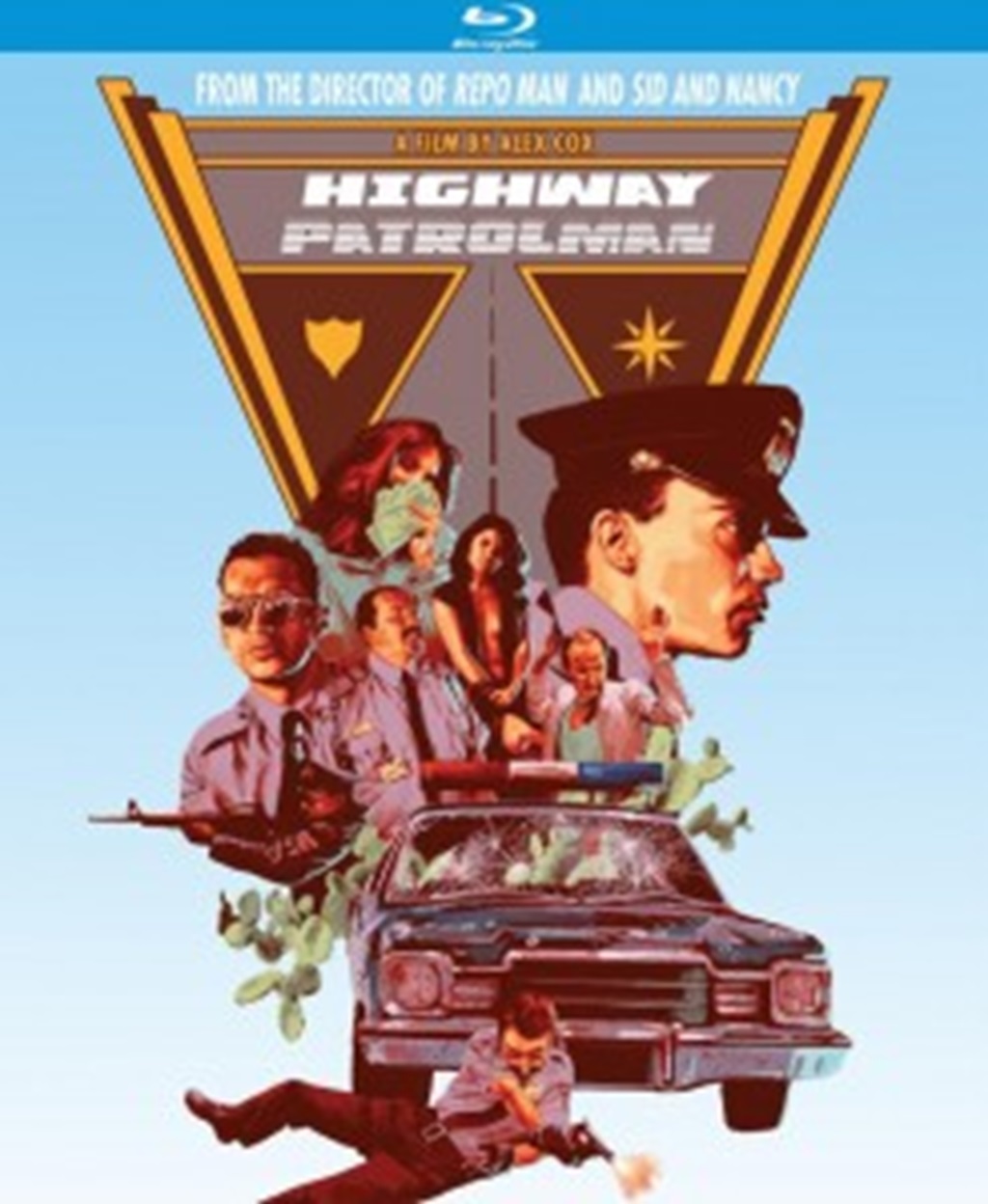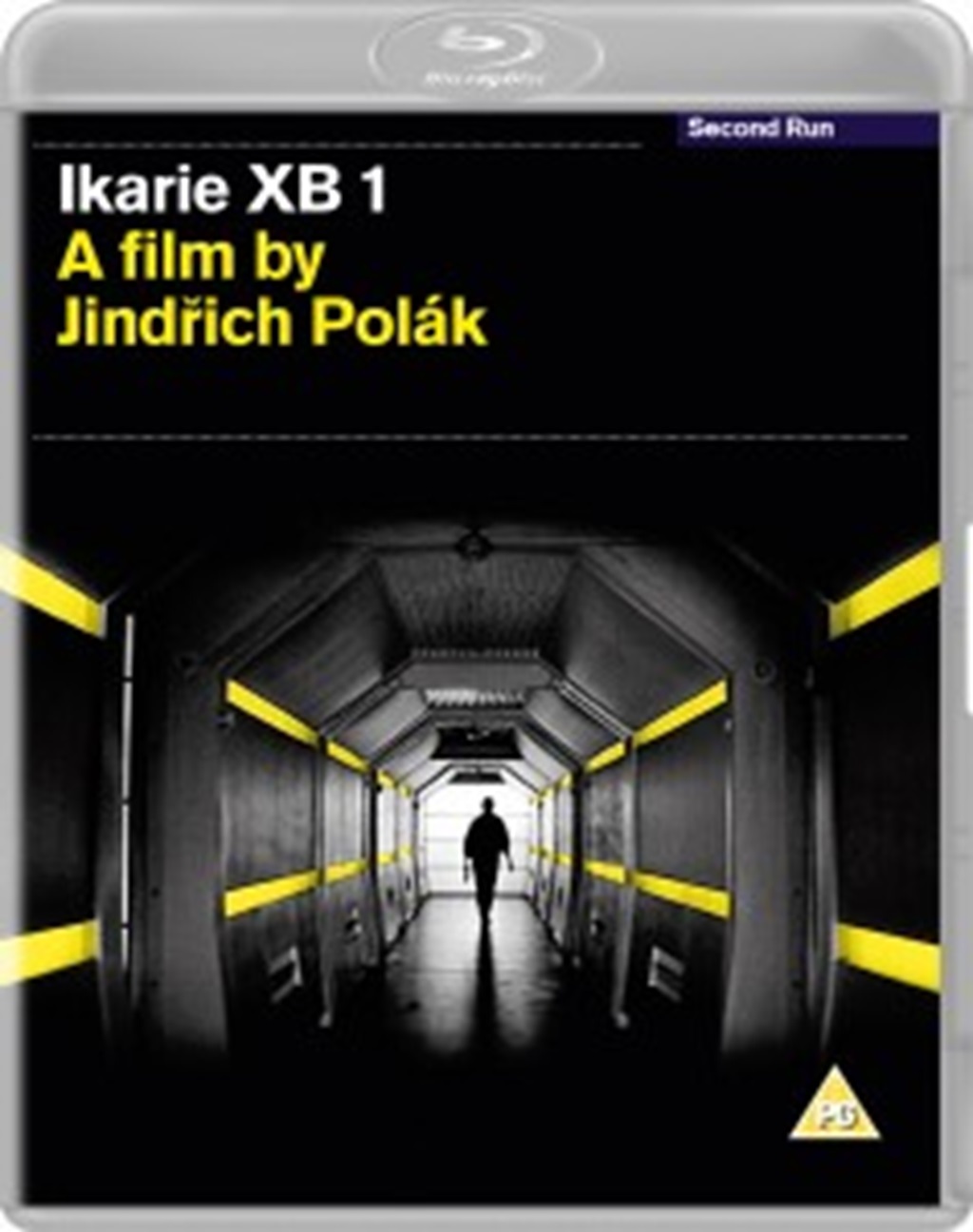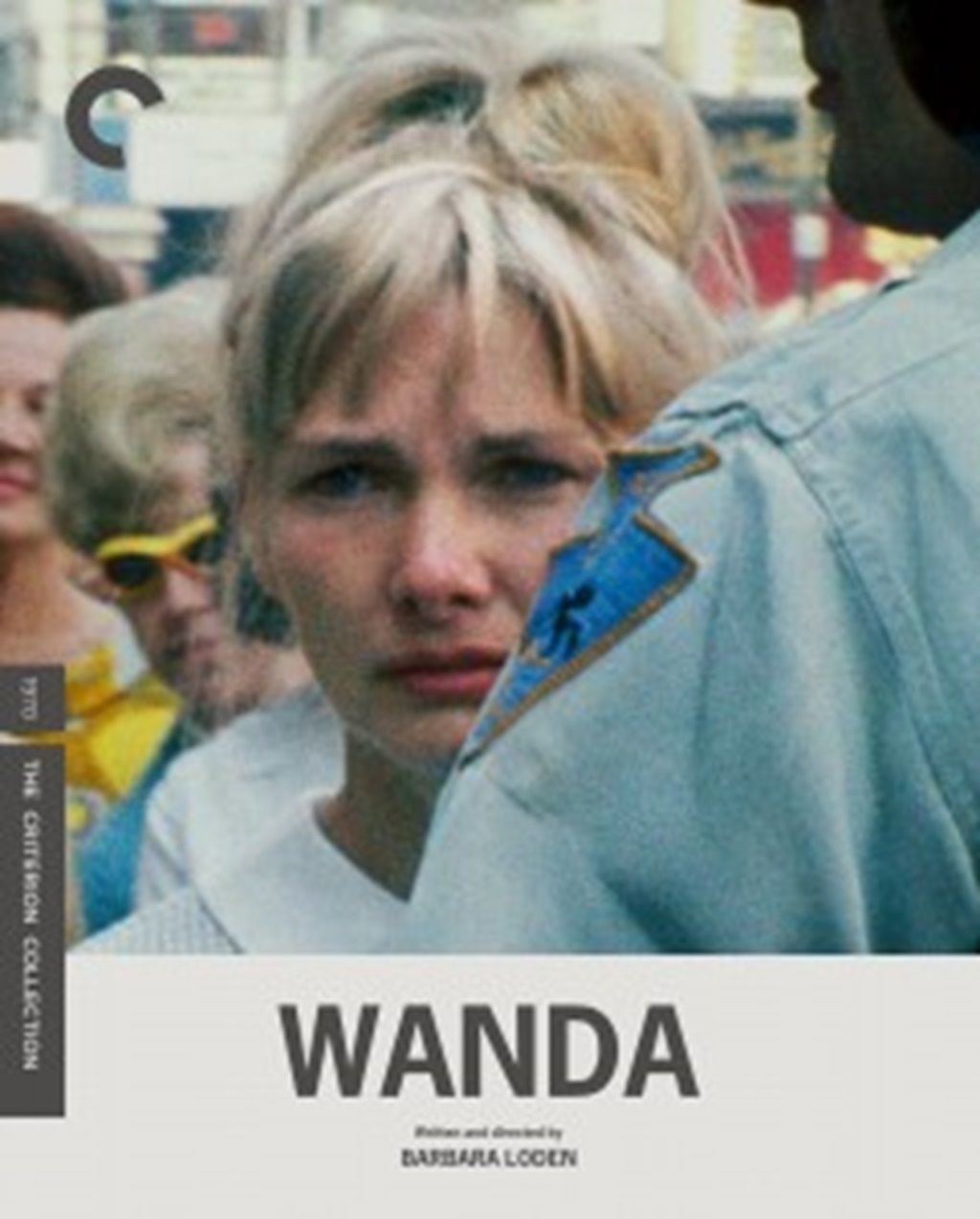The rise of digital streaming services has impacted physical media sales, but Blu-ray continues to be relevant for enthusiasts who value high-quality audio and video.
Refer to the article for the Blu-Ray review round-up of films by Barbara Loden, Alex Cox, Jindrich Polak, And More!
Blu-Ray Review Round-Up
Blu-ray remains famous for consumers and content creators seeking high-quality, high-capacity physical media.
Until the end of the article, find the specific Blu-ray reviews about the movies you’re interested in.
Also, see Hitchcock And Grant: Darkness Behind The Charm.
Highway Patrolman (1991) Kino Lorber Studio Classics
Exiled from Hollywood after the film Walker, Alex Cox ventured into the Mexican film industry, creating Highway Patrolman, his third western.
Unlike his previous works, this film is relatively conventional, with elements of bitter satire and surrealism on the fringes rather than at its core.

The movie follows Pedro, a rookie cop in a remote border town, and his journey from an eager novice to a hardened professional.
The film balances contempt for authority with genuine care for the protagonist, delving into supernatural elements, such as a visit from Pedro’s deceased father, seamlessly integrated with the story’s more straightforward aspects.
Kino’s Blu-ray offers a 1080p, 1.85 transfer from a new 4K restoration approved by Cox, presenting the film in its best home video quality yet.
The release includes bonus content from the previous DVD release, such as an audio commentary by Cox and producer Lorenzo O’Brien, making-of featurettes, and a newly filmed intro by Cox, along with his debut short film, Sleep is For Sissies.
The review also expresses hope for future upgrades of Cox’s films, including the release of Three Businessmen.
Khrustalyov, My Car! (1998) Arrow Academy
Filmmaker Alexei German was not known for producing many films, with only five solo directorial works to his name at the time of his death in 2013.
His final film, the ambitious sci-fi epic “Hard to Be a God,” and his penultimate work “Khrustalyov, My Car!” were characterized by many ideas pushing their cinematic frameworks’ limits.

“Khrustalyov, My Car!” is visually intense, featuring dense and deep-focus frames that overwhelm the viewer with intricate activity.
German’s meticulous scenic design is prominently featured, with the film using spit as a metaphor for authoritarianism in contrast to the use of literal excrement in “Hard to Be a God.”
While some parts of German films may require extensive knowledge of Stalinist-era Russia to understand fully, the basic plot of “Khrustalyov, My Car!” revolves around military doctor General Klensky becoming the target of an anti-Semitic scheme, creating a pervasive sense of dread and paranoia.
Despite its relentless pessimism, the film incorporates a range of humor, from juvenile bodily functions to surreal moments, demanding and deserving careful attention from its audience.
The Blu-ray release of “Khrustalyov, My Car!” by Arrow features a high-quality 1080p, 1.37:1 transfer from a new 2K restoration, effectively capturing the film’s visually challenging scenes with consistent vital detail and clarity.
The accompanying LPCM 2.0 track effectively handles the dense soundtrack without issues.
The extras included in the release are extensive and impressive.
There is an audio commentary, a video essay on German style, a featurette on the historical context of Stalin’s plot, archival interviews with Germans, and a 60-page booklet with essays and reviews.
The package comes in a sturdy slip box with a fold-out poster, making it a top-notch offering.
Ikarie XB 1 (1963) Second Run
A significant part of the appeal of Jindřich Polák’s Ikarie XB 1 lies in its position within the science-fiction genre.
The film features a geometric set design that significantly impacted Stanley Kubrick’s 2001: A Space Odyssey.
It is loosely based on Stanislaw Lem’s work and anticipates the emotional strain of space travel depicted in Andrei Tarkovsky’s Solaris, albeit with a more optimistic outlook.

There are even echoes of Claire Denis’ High Life, where the psychological impact of space on individuals is a unique existential threat.
Polák, in collaboration with Czech New Wave luminary Pavel Juráček, astutely places the film within the broader sci-fi continuum, incorporating a robot character reminiscent of Robby the Robot while playfully subverting its relevance as a relic from the past.
Simultaneously, the film exudes a quaint charm, featuring a co-ed crew engaging in leisure activities like a kitschy dance party, seemingly out of place in the futuristic setting of the year 2163.
Despite portraying a crew grappling with emotional uncertainty, mysterious sickness, and the discovery of a nuke-equipped ship filled with fossilized humans, the film maintains an underlying tone of optimism.
Its avant-garde design elements coexist with a romantic outlook, presenting a captivating milestone in the evolution of sci-fi cinema.
Second Run’s 1080p, 2.35:1 Blu-ray transfer, sourced from the Czech National Film Archive’s 4K restoration, delivers a solid visual presentation characterized by good grayscale separation and a spotless image, albeit with occasional softness and minor fluctuations.
The included 2.0 mono uncompressed track effectively showcases Zdeněk Liška’s versatile score.
The Blu-ray release comes with new bonus content, including the opening and ending of the dubbed US version of “Voyage to the End of the Universe” and the 1963 short film “The Most Ordinary of Occupations” directed by Josef Korán.
It also includes previously available content, such as critic Kim Newman’s analysis and an extensive booklet essay by Michael Brooke.
Wanda (1970) Criterion Collection
It has been nearly a decade since the restoration of Barbara Loden’s sole feature film, which had limited visibility for much of its existence.
The film, now available from Criterion, may take time to strike one as a masterpiece, with a meandering quality characteristic of many New Hollywood films.

However, it has left a lasting impression, mainly due to the overwhelming passivity of the character Wanda, played by Loden herself, who becomes entangled in a misguided robbery scheme.
Wanda, portrayed by Loden with remarkable subtlety, embodies a profound lack of agency, conveying a sense of internalized negativity.
One particularly memorable scene shows Wanda traversing a desolate coalfield, epitomizing her smallness and desire to vanish.
Loden’s portrayal, distinct from her previous roles, is unapologetically unglamorous.
Criterion’s 1080p, 1.37:1 transfer, sourced from UCLA’s 2K restoration of the 35mm blowup of the 16mm elements, retains the film’s grainy aesthetic while effectively removing imperfections.
The accompanying lossless mono track maintains the film’s original audio quality.
The extras included by Criterion provide insight into Loden’s artistry, with a documentary featuring an interview from the year of her passing, archival interviews, her educational short film, and an insert essay by critic Amy Taubin.
These elements collectively offer a compelling glimpse into the life and work of an artist whose career was cut short.
Becky Sharp (1935) Kino Lorber Studio Classics
The 1935 film “Becky Sharp,” directed by Rouben Mamoulian, holds historical significance as the first feature film to utilize the three-strip Technicolor process.
Despite its unconventional adaptation of William Makepeace Thackeray’s novel “Vanity Fair,” the film’s uniqueness warrants recommendation on its own merits.

Miriam Hopkins’ portrayal of the protagonist, Becky Sharp, injects the class satire with an infectious screwball comedy energy, earning her an Oscar nomination.
Her vibrant performance compensates for the lack of distinctiveness among the male characters she encounters in her pursuit of social advancement. Mamoulian’s direction, while at times lackluster, is enlivened by Hopkins’ dynamic presence in each scene.
Kino’s 1080p, 1.37:1 Blu-ray release benefits from a new 4K restoration of the 35mm nitrate negative and positive separations.
The restoration showcases occasional color inconsistencies and image fluctuation inherent in the early Technicolor process, but it significantly improves the visual quality compared to previous public domain DVDs.
Including an audio commentary from historian Jack Theakston adds value to the release.
Columbus (2017) Oscilloscope Laboratories
“Columbus” marks the directorial debut of Kogonada, renowned for his video essays, often featured as extras on Criterion releases.
The film, characterized by impeccably composed shots of modernist architecture in Columbus, Indiana, occasionally needs to be more stylized, which may become a drawback after prolonged exposure.

The script’s subtext-laden dialogue and aloofness contribute to a somewhat suffocating atmosphere.
However, the performances, particularly by Haley Lu Richardson as Casey and John Cho as Jin, elevate the film beyond its constraints.
Both actors skillfully convey unspoken emotions, adding depth to their characters’ burgeoning friendship amidst the city’s architectural marvels.
Kogonada’s structured humanism, while not entirely convincing, receives an emotional resonance through the cast’s compelling performances, notably Parker Posey in a small but impactful role as Jin’s father’s assistant.
Oscilloscope’s Blu-ray release presents the film with an excellent 1080p, 1.85:1 transfer, and a subtle yet effective 5.1 DTS-HD Master Audio soundtrack, with the option of a 2.0 track.
The extras include selected-scene commentary from Richardson and Cho, deleted scenes, an outtakes/making-of short film by the director, and the trailer.
People also viewed The West of Fritz Lang.

